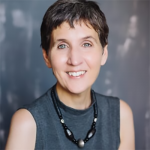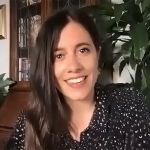
The Next Normal: Civil Liberties and Health
How can public health practitioners communicate effectively with communities about emerging science, to identify the trade-offs between individual civil liberties and health of the public, and engage in strategies that encourage communities to embrace the importance of working together to protect each other?


Register
Course Information
- Audience: Public Health Professionals
- Format: Webinar
- Date/Time: Thursday, October 21st 4:30 PM – 5:45 PM EST
- Price: Free
- Length: 1.25 hours
- Credential(s) eligible for contact hours: Sponsored by New England Public Health Training Center (NEPHTC), a designated provider of continuing education contact hours (CECH) in health education by the National Commission for Health Education Credentialing, Inc. This program is designated for Certified Health Education Specialists (CHES) and/or Master Certified Health Education Specialists (MCHES) to receive up to 1 total Category I continuing education contact hours. Maximum advanced-level continuing education contact hours are 1. Provider ID: 1131137 Event ID: SS1131137_NNCLH
If you are not seeking a CHES/MCHES contact hours, if you complete the post-test and evaluation, you will receive a Certificate of Completion. The Certificate will include the length of the course.
- Competencies: Data Analytics and Assessment Skills
- Learning Level: Awareness
- Companion Trainings: None
- Supplemental materials:None
- Pre-requisites: None
About this Recording
Many conversations surrounding the COVID-19 pandemic were framed as a trade-off between individual liberties and the health of the public. Was this the right framing?
What are the implications of the moment for future conversations? This program is a part of “The Next Normal” series, designed to take a moment to pause and ask, as we emerge from the pandemic, what we have learned and why, in order to promote the health of all, we cannot return to pre-pandemic normal.
What you'll learn
At the end of the recording, participants will be able to:
- List 5 specific ethical questions related to civil liberties posed by mandates (e.g., masks, vaccination) in response to the pandemic
- Discuss challenges and opportunities COVID-19 exposed in American bioethics
- Describe how systemic racial discrimination was highlighted and exacerbated by the COVID pandemic
- Discuss the relationship of social injustice and health inequities and the importance of focusing on avenues to address underlying injustices in future social and legal policies
Subject Matter Experts

Nancy Berlinger
Research Scholar,
@HASTINGSCENTER
The Hastings
Center
Colleen Flood
@COLLEENFLOOD2
Professor and University Research Chair,
University of Ottawa
Chantal Da Silva
@CHANTALADASILVAMODERATOR
Freelance journalist working for NBC News
Ruqaiijah Yearby
@RUQAIIJAHProfessor of Law and Executive Director and CO- Founder, Institute for Healing Justice and Equity, Saint Louis University
Nancy Berlinger is a Research Scholar at The Hastings Center, an independent bioethics research institute based in Garrison, NY. Her current research focuses on ethical and societal challenges arising from population aging; the bioethics of migration, and responding to and learning from the Covid-19 pandemic. She has longstanding research interests in decision-making and care in serious illness and near the end of life; the management of problems of safety and harm in health systems, and the moral dimensions of care work. She directs The Hastings Center’s Visiting Scholar Program, including the Sadler Scholars Program for doctoral students from underrepresented communities, here. Highlights of current and recent work: Bioethics for aging societies: Since 2016, Berlinger has overseen the development of research projects and public-facing work exploring the consequences of population aging, with close attention to what it means to flourish in late life, how to support experiences such as living with dementia, and how to apply concepts and data from housing-focused research and policy analysis to conceptualizing aging in community.
Colleen M. Flood is a Professor in the Faculty of Law at the University of Ottawa and University Research Chair in Health Law & Policy. In addition, she serves as the inaugural director of the university’s Centre for Health Law, Policy and Ethics. From 2006-2011, she was also a Scientific Director of the Institute for Health Services and Policy Research, one of the Canadian Institutes of Health Research. Professor Flood has pushed the boundaries of health law beyond its traditional focus to illuminate law’s role in the broad web of relationships within health systems. Her comparative research has brought new insights and knowledge to Canadian and global debates over privatization, health system design and governance, and the role of courts in defending rights in health care. She is the author/editor of 10 books (two of which are in multiple editions) and publishes broadly in academic journals and for the popular press. Her two most recent books are: The Right to Health at the Public/Private Divide (co-edited with Aeyal Gross, 2014) and Law & Mind: Mental Health Law and Policy in Canada (co-edited with Jennifer Chandler, 2016). You can read some of her work at: https://papers.ssrn.com/sol3/cf_dev/AbsByAuth.cfm?per_id=333684 In addition to her extensive research program, Professor Flood also contributes to various committee activities. From 2012 to 2016, she served on the governance board of the Institute for Clinical Evaluative Sciences. She is currently on the board of Associated Medical Services and a member of the Corporation of Massey College. Professor Flood has received several honours and distinctions for her work. Most recently, she was elected as a fellow of the Royal Society of Canada. In 2013, she was appointed an honorary member of the College of Family Physicians of Ontario. Colleen M. Flood holds degrees from the University of Auckland and the University of Toronto.
Chantal Da Silva is a freelance journalist working for NBC News. Her work has been featured by Newsweek, where she previously served as chief correspondent, as well as by CNN, The Independent, Forbes, The Bureau of Investigative Journalism, The Guardian and others. Affiliation and title: Freelance journalist working for NBC News.
Ruqaiijah Yearby, J.D., M.P.H is a full professor and member of the Center for Health Law Studies at Saint Louis University School of Law. She is also co-founder and Executive Director of Saint Louis University’s Institute for Healing Justice and Equity and Co-Principal Investigator for the Robert Wood Johnson Foundation grant entitled, “Are Cities and Counties Ready to Use Racial Equity Tools to Influence Policy?”. Additionally, she has served as an Instructor for the Harvard Medical School, Center for Bioethics. Professor Ruqaiijah Yearby is an expert in racial health disparities, who advocates for equal access to quality health care and fair wages for racial and ethnic minorities, women, and the poor. Recently, Professor Yearby authored Protecting Workers that Provide Essential Services and co-authored Racism is a Public Health Crisis. Here’s How to Respond, which was used to support the passage of Connecticut House Bill No. 6662, that declares racism as a public health crisis as well as cited in the American Psychological Association Resolution to Combat Racism and in the 2020 Health Equity report for Boone County, MO. Her work has been published in the American Journal of Bioethics, Health Affairs, and the Oxford Journal of Law and the Biosciences and used in law, medical school, and social science classes at schools such as Harvard, NYU, Fordham, and the University of California Berkeley.
Registration
Select the Enroll Me button below to register for this recording. If you have any trouble accessing the recording, contact support@nephtc.org.
Acknowledgement: This project is/was supported by the Health Resources and Services Administration (HRSA) of the U.S. Department of Health and Human Services (HHS) under grant number UB6HP31685 “Regional Public Health Training Center Program.” This information or content and conclusions are those of the author and should not be construed as the official position or policy of, nor should any endorsements be inferred by HRSA, HHS or the U.S. Government.

